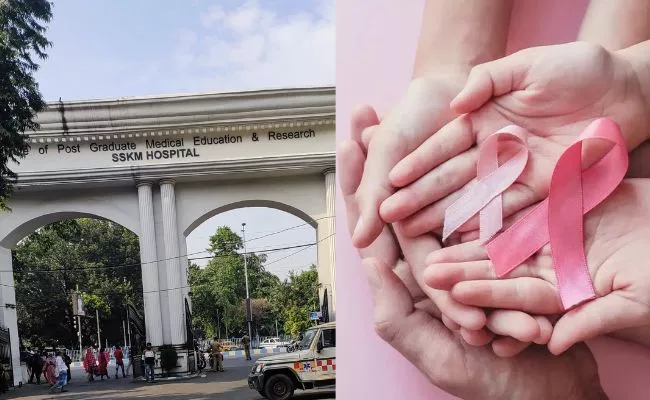Speeding bus mows down pedestrian at MG Road more, driver flee
.gif)
.gif)

SSKM Hospital in West Bengal has achieved a significant milestone by becoming the world’s first hospital to conduct a clinical trial focused on breast cancer diagnosis, in collaboration with the World Health Organization (WHO). This groundbreaking study, led by the renowned PG Hospital of Bengal, aims to improve early detection rates of breast cancer in local communities through widespread screening.
In a notable effort, the research team is reaching out to neighborhoods to screen women for breast cancer, an affliction that represents 13 percent of cancer cases in Bengal. These screenings, conducted on a large scale, use portable ultrasound devices designed to offer immediate assessment. If a suspicious lump is identified, further testing is provided on-site, allowing for immediate diagnosis in some cases.
The initiative has already reached approximately 5.9 million women in remote areas of Bengal, highlighting the importance of early detection in cancer treatment. Women are being assessed in community camps set up by a joint team of SSKM and WHO, providing critical intervention by identifying lumps and determining if they are cancerous using innovative small devices. This new technology, small enough to be portable, could revolutionize the accessibility and efficiency of cancer diagnostics.
The trial is in its first phase, with doctors working toward making real-time diagnosis possible even in the remotest areas. By diagnosing cancer at such early stages, the chances of successful treatment improve significantly. Dr. Diptendra Sarkar and Dr. Partha Bose, who head the program, have been instrumental in advancing Bengal’s healthcare sector. According to Dr. Sarkar, they are now testing these devices in community settings, allowing them to flag potential cases and refer patients to treatment hubs if needed.
This pioneering approach in breast cancer diagnostics brings Bengal to the forefront of global cancer research and holds potential as a model that could be replicated worldwide. The success of this trial could lead to a new era in cancer detection, particularly in under-resourced areas where early diagnosis has historically been a challenge.